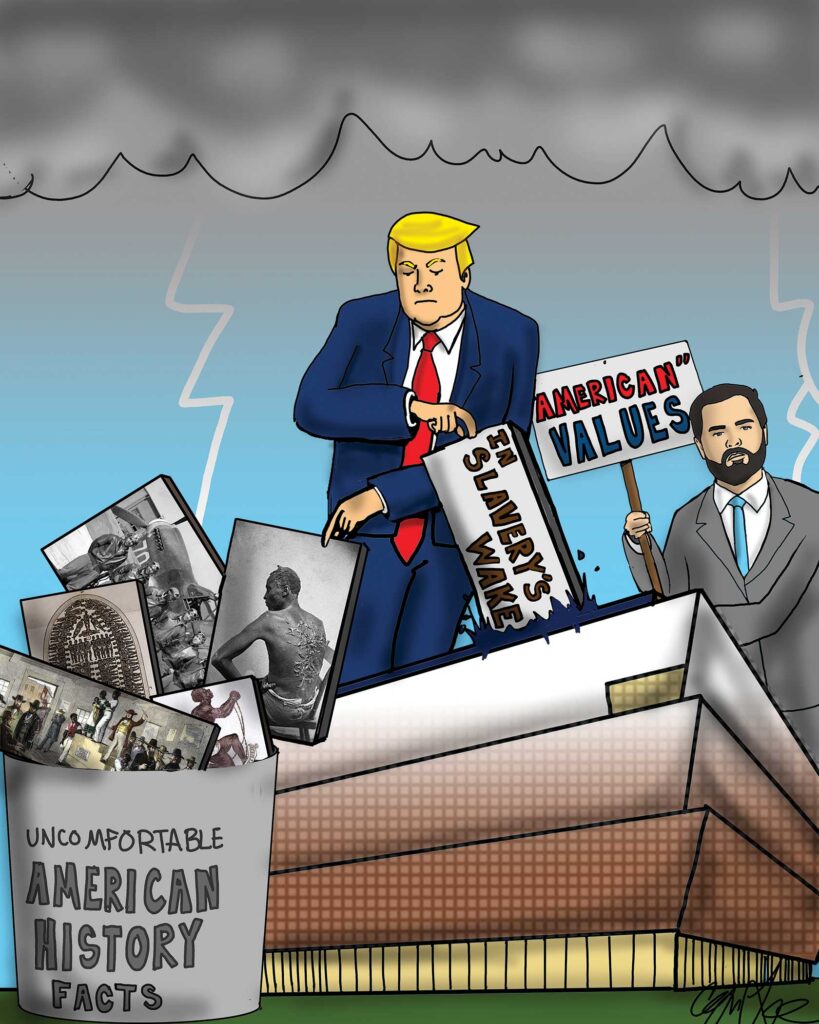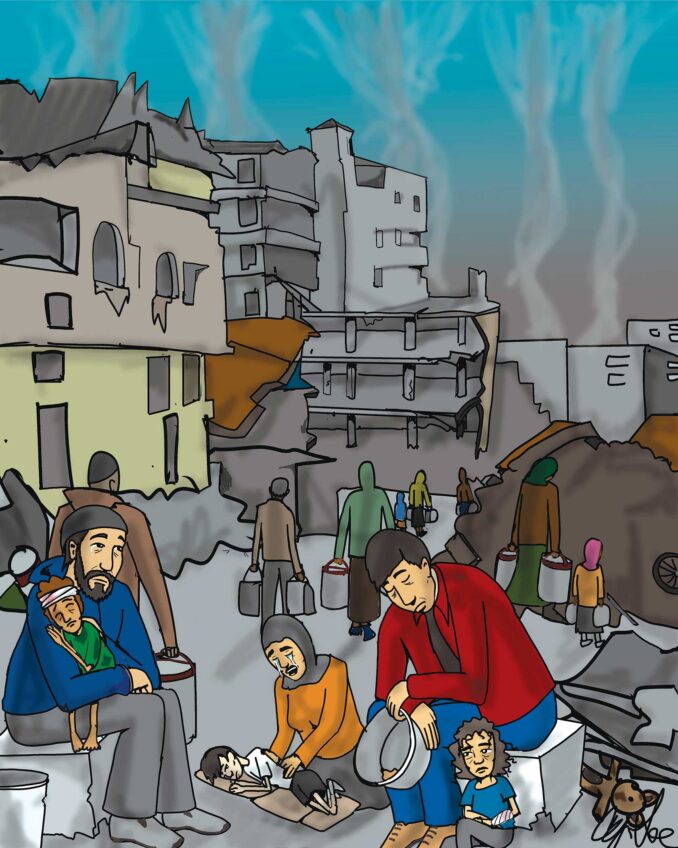Whitewashing the past: The Trump administration’s challenge to Black history

The study of history is a continuous process of reevaluation, a collective effort to understand the past in all its complexity and nuance. For decades, American historians have worked to expand the national narrative beyond a simple story of progress and triumph, integrating the profound and often painful experiences of marginalized groups, especially African Americans. However, during the presidency of Donald Trump, this established academic consensus faced a direct and deliberate challenge. Through a series of administrative actions, public statements, and the promotion of a specific ideological view of the nation’s founding, the administration was widely criticized for what many historians and civil rights advocates have called an act of “historical whitewashing”— a systematic effort to sanitize and reframe American history by minimizing the central role of slavery and racial inequality.
This edict was initiated in 2020 following the President’s Advisory 1776 Commission, a body established in direct response to the New York Times’ 1619 Project. While the 1619 Project argued that the legacy of slavery fundamentally shaped the United States from its very inception, the 1776 Commission’s report offered a starkly different narrative. The report, released on Martin Luther King Day, asserted that the nation’s founding principles, articulated in the Declaration of Independence, were inherently opposed to slavery and that the institution was a “compromise” that was on its way to extinction. It dubiously compared the abolitionist movement to progressivism and communism, framing both as “identity politics” that undermine national unity. This type of thinking is especially ironic, given the chief executive’s apparent lack of knowledge of the Declaration document, which was broadcast on national TV this year. The report was not a work of peer-reviewed scholarship; it contained no footnotes or bibliography and was immediately and overwhelmingly condemned by professional historians across the political spectrum as a partisan document filled with factual errors and distortions. Its purpose, critics argued, was not to advance a more accurate understanding of the past, but to weaponize history for political gain by promoting a selective, celebratory, and ultimately misleading account of America’s origins.
Beyond the formal commission, the administration’s rhetoric and policies reinforced this revisionist approach. Trump consistently refers to civil rights and social justice movements as “divisive,” arguing they promoted an “anti-American” view of the country. This was evident in his defense of Confederate monuments and his opposition to the Black Lives Matter movement, which he often characterized as a destructive force rather than a response to systemic discriminatory issues rooted in American history. These public statements, coupled with policies aimed at curbing diversity and inclusion initiatives in federal agencies and schools, sent a clear message. The purge of Black people on federal websites included Jackie Robinson, Medal of Honor recipient Major General Charles Calvin Rogers, the Navajo Code Talkers, and Harriet Tubman from the National Park Service. The Defense Department later put some of these heroes back on their sites, but the damage has been done. Brigadier General Enoch Woodhouse has had his Wikipedia page scrubbed, and the only reference to this Tuskegee Airman hero remains on another page, which still lists him as a Lieutenant Colonel. This administration also sought to discourage any curriculum or public discourse that explored the deep-seated legacy of racism and its ongoing impact on American society. For instance, the administration initiat ed a review of museum content, particularly at the Smithsonian’s National Museum of African American History and Culture, with the stated aim of removing what it deemed “divisive” content about slavery and American history.
The implications of this historical revisionism are profound and extend far beyond academic debate. When history is sanitized, the past is not merely forgotten; it is actively reshaped to serve a contemporary political purpose. This “whitewashing” minimizes the centuries of suffering and resistance of Black Americans, from the transatlantic slave trade to the Jim Crow era and beyond. By downplaying the original sin of slavery and the systemic racism that followed, it becomes easier to dismiss calls for racial justice in the present day.
It creates a narrative that suggests America’s racial problems are minor aberrations rather than fundamental, deeply embedded challenges. A comprehensive understanding of Black history — including the immense sacrifices, contributions, and struggles — is essential for a complete and honest accounting of the American story. It is the only way to build a more just and equitable society, because it acknowledges the roots of current inequalities and validates the experiences of those who have been marginalized.
Ultimately, the Trump administration’s approach to history, particularly its challenge to a truthful Black history, represents more than a disagreement over facts. It is a part of a larger ideological battle over national identity. The actions of the 1776 Commission, the public rhetoric, and the policies concerning education and museums collectively reveal a concerted effort to replace a complex, inclusive, and at times complicated history with a simplified, celebratory mythology. This effort, while facing significant resistance from historians and educators, highlights the ongoing struggle for control of the national narrative and underscores the critical importance of a historically accurate and honest account of the past for the future of American democracy. It’s time to wake up and fight for our true historical perspectives before they are obliterated.
André Stark
Assoc. Publisher, Bay State Banner







Leave a Reply
You must be logged in to post a comment.